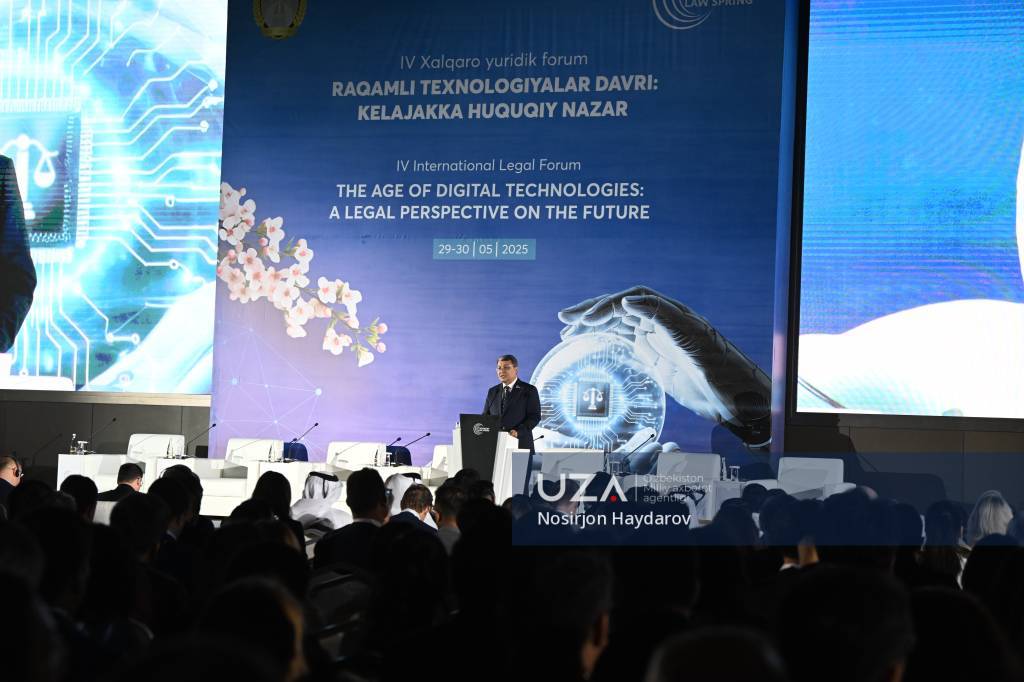
On May 29-30, Tashkent once again becomes the center of attention of the global legal community as it hosts the 4th International Legal Forum, Tashkent Law Spring. Held since 2019, this event has established itself as one of the leading international platforms for legal dialogue.
This year’s main theme is “The Age of Digital Technologies: A Legal Perspective on the Future”. Participants are discussing key challenges and prospects of digitalization in the legal sphere and the impact of modern technologies, including artificial intelligence, the Internet of Things, Big Data, and blockchain, on legal systems and institutions.
The event brings together around 1,200 delegates, including 150 foreign speakers and officials from more than 40 countries. Among them are the heads of the ministries of justice of Saudi Arabia, the UAE, Pakistan, Russia, Azerbaijan, and Kyrgyzstan, the Attorney-General of Singapore, and the Executive Director of the World Justice Project.
The forum’s key topics include the development of e-government, digital notary services, reforms in legal education, intellectual property protection, the implementation of smart contracts, cybersecurity assurance, and the transformation of law enforcement practices in light of new technologies.
Particular attention is given to integrating artificial intelligence into lawmaking and the judicial system. Forum participants – including lawyers, scholars, and IT sector representatives – are discussing international experience in this field and the possibilities for its application in Uzbekistan.
Since its inception, the forum has delivered tangible results: 14 international agreements have been signed, and 48 legislative proposals have been initiated. This year’s meeting is expected to pave the way for new reforms aimed at improving legislation, attracting foreign investment, and expanding international cooperation.
Among the most discussed topics will be the legal regulation of AI-generated content, proposals for cross-border recognition of electronic signatures, and the legislative formalization of digital notary services.
[gallery-23648]
Aziza Alimova, photos by Nosirjon Khaydarov, UzA








